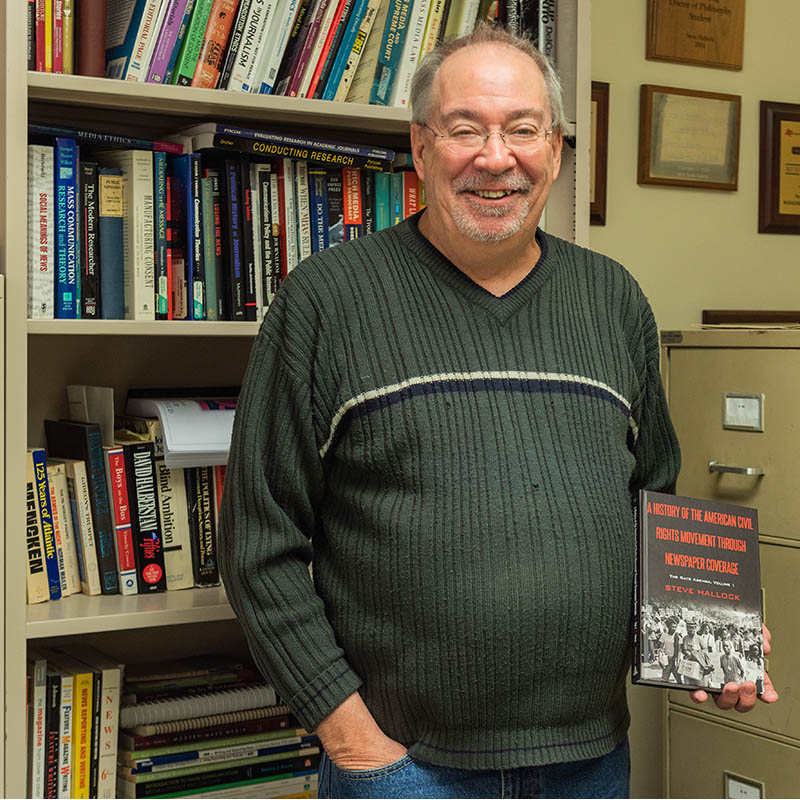Journalism Professor Steve Hallock Authors Eighth Book Monday, November 19, 2018

"Because of my nearly 30 years in newspaper journalism, I have real-world experiences to share with my students ... Because of my own experience as a scholar and researcher, I can help students engage in their research into the key theories and applications of journalism and mediated communication."
You recently authored your eighth book, A History of the American Civil Rights Movement Through Newspaper Coverage: The Race Agenda, Volume I. Tell us more about it.
This book, which is the first of a two-volume project, is an act of journalism about journalism in which I explore, using content analysis of 12 newspapers in the Northern, Southern and Western United States, communication theories that include framing, agenda-setting and gatekeeping to analyze how these newspapers differed in their coverage of the major events and issues of the civil-rights movement of the '60s and '70s. I draw the conclusion that words and how they are employed have significant effect on society, as we continue to see in dramatic fashion today.
Previous Publications
- Some of Doc's Blues
- Editorial and Opinion: The Dwindling Marketplace of Ideas in Today's News
- Reporters Who Made History: Great American Journalists on the Issues and Crises of the Late 20th Century
- The Press March to War: Newspapers Set the Stage for Military Intervention in Post-World War II America
- In Cheesman Park
- Justice Delayed: The Catherine Janet Walsh Story
- The Silent Treatment
What inspired your passion for writing?
My curiosity about the world and the people in it, my interest in narrative, or storytelling, about people and their cultures, and my desire to contribute to my community and to the democracy and its culture.
How do you incorporate your professional experience into the work you do at Point Park University?
Because of my nearly 30 years in newspaper journalism, I have real-world experiences to share with my students, because even though journalistic platforms are undergoing drastic changes, words still matter, people still need information about their society and culture, narratives continue to inform us about our world in positive, and negative, ways depending on how they are applied legally and ethically. Because of my own experience as a scholar and researcher, I can help students engage in their research into the key theories and applications of journalism and mediated communication.
What do you like best about teaching at Point Park?
My interactions with graduate students, mentoring them in their journalistic and research endeavors and, in the process, teaching them how to use journalism to improve their communities.
What advice do you have for our graduate students?
Find your passion and you will figure out a way to pursue it. People who are lucky enough to find a niche doing what they enjoy will never have to work a day in their lives.
Photo by Nick Koehler, photojournalism major

